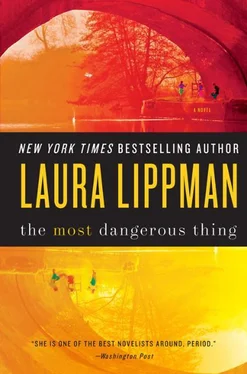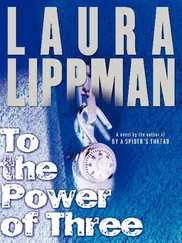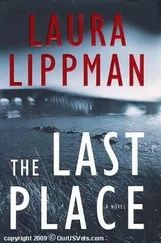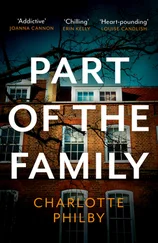But the real problem was that Gwen and Sean fell in love. As five, we were mighty, the points on a star. Remember learning how to draw a star? When you are little, it seems impossible, out of reach. You draw lopsided, lumpy things. Then one day, someone shows you the secret. Mickey taught it to Go-Go: one line slashing down, a second shooting up in a diagonal. Straight across, diagonal down, diagonal up. A mere five lines, but when you have finished, there are six shapes within the one: five triangles clustered around a pentagon. Yes, there are even more, you can add and subtract lines, creating more shapes. But if you are true to the integrity of the lines you have drawn, there are five triangles and a pentagon. The pentagon was what grounded us, a magnetic field that held us together. Some might say the pentagon was Chicken George, but it was our talent for secrecy, our sense of ourselves as a single community. Once we five joined, truly joined, it was never boys against girls, or Hallorans against the other two families. No, it was Sean and Gwen who destroyed us. Two of our triangles cut themselves off and ran away together, and we were never whole again. Never.
Less than a week after Chicken George gave Gwen a sheet and dried her clothes by his fire, he disappeared again. And this time, he seemed to be gone gone-his cupboards bare, the line empty of wash, the chickens pecking at our ankles in a newfound desperation, but we had no feed to give them. You couldn’t say the place was clean. It would never be clean. But it was neat, emptied out. Even Chicken George knew that an era had ended. The five of us stopped going to his cabin.
But Gwen and Sean still went. All summer long, they slipped away to that cabin, never dreaming that anyone was watching them.
“A nd he-” Giggle.
The sentence and the giggle ends before Tim comes through the swinging door into the kitchen and confronts three sets of round, blue eyes. Round with innocence, which, he’s pretty sure, is fake. But also round with cold, if such a thing were possible, like the mass-manufactured ice found at buffets. His daughters have taken to regarding him with round, cold eyes these days, as if by widening them they could empty them of all hints, all clues to their existence and inner thoughts. However, he is pretty sure that their thoughts run something like this: boys boys boys boys shoes boys. And maybe, although he hopes not, partying, although he is unclear if partying is simply a by-product, a place to wear shoes and find boys, or if the partying is the destination, the boys and shoes the vehicles. Even the littlest one, only eight, is in on the act. They are three of a kind, thick as thieves. Identical blue eyes, long blond hair, worn straight and parted down the middle, heart-shaped and heartbreaking faces.
“Good morning,” he says. He knows better-now-than to ask about the interrupted, overheard comment. He knows not to ask anything. Move along, nothing to see here. His daughters remind him of the salamanders he and his brother hunted at the old springhouse. Salmon pink with tiny spots, they were easy enough to see in the clear, rushing water. But to grab one-almost impossible. Only Go-Go had been quick enough, and even he could never hold on to the little buggers. Tim can observe his daughters, but he can’t hold them, not anymore.
“Can I have the car today?” asks the oldest, Michelle. “I have to go to Mary’s.”
“I was going to play golf.” He is careful not to say no immediately, to offer the reason before the rejection. The mere sound of that syllable, no, seems to drive his daughters insane, triggering horrible pouting rages. Instead he tries to let them work their way toward no through inference. If he has a golf date, it stands to reason he will need the car for a good chunk of the day. Certainly his daughters can figure that out.
“Can’t one of your friends take you?” Michelle counters.
He wants to say the same thing back to her. But, no-be Joe Friday. Just the facts, ma’am: “My tee time is at eleven A.M.”
“I don’t need the car until one,” Michelle says.
“And she could drop me at the movies, then pick me up on the way home,” says Lisa, the middle girl. He waits to see if the baby, Karen, is going to throw herself on the pile, a little pyramid of daughters he will then be forced to knock over with his unfathomable cruelty, his desire to use his own car on his day off. How could he? He is the meanest daddy in the whole wide world. Until recently, he would have given them the car, found another way. He used to believe that if he said yes to all the easy things, the girls would be grateful and well behaved.
Then he saw the much-too-old-for-her boy-twenty, twenty-one?-dropping Michelle off on a Saturday morning, when she was supposedly returning from a sleepover at Mary’s. Who was that? he asked, struggling to keep his voice casual. Oh, Mary’s older brother. He was nice enough to bring me home early when I said I didn’t feel good. The smell of pancakes made me want to vomit.
He and Arlene waited until all the girls were out of the house, then tossed Michelle’s room. They found the birth control pills beneath a pile of bras, filmy insubstantial things that didn’t look up to the task of harnessing his daughter’s frighteningly developed breasts. But neither he nor Arlene was sure what to do next. Obviously, they couldn’t take the pills because Michelle would probably stop using them, possibly fulfill her unspoken ambition to be picked for MTV’s Teen Moms . Yet if they confronted her, what would they say? You can’t have sex? You can’t use birth control? You can have sex and use birth control, but we have to be part of the decision? Tim doesn’t want any part of his daughter’s sex life. He wants his daughter not to have a sex life. Is that so much to ask?
They were still trying to figure out what to do about Michelle when the mother of Lisa’s best friend called. They had discovered a joint in her daughter’s room, and the daughter said it was Lisa’s, that she let her hide her “stash” there. The two sets of parents talked to the girls alone, then together. They played good cop, bad cop. They threatened, cajoled. And those two little teenyboppers turned out to be tougher than the most hardened career criminals that Tim could imagine. And Tim, as an assistant state’s attorney in Baltimore County, knows from hardened career criminals. He blames Law & Order. Everybody is too fucking savvy these days. When he tried to tell the girls that he could send the joint to the crime lab and figure out which one of them had smoked it, Lisa’s friend, Dani, said blandly, “There’s a huge backup. Plus, our DNA isn’t on file, and I’m not letting you swab my cheek unless you get a court order.”
He decided to believe his own daughter. Why would a non-drug user let someone stash drugs in her home, especially a hard little number like this Dani, a fleshy, unattractive girl who has trouble written all over her? That gut on her was probably the result of pot-inspired munchies. It was a weird thing, maybe a trick of memory, but teenage girls these days seemed fatter to Tim. Either really fat or a little too slender, his daughters falling in the second camp. It kills him, when he does the laundry, to see how tiny their clothes are, and not just the baby’s, as they secretly still think of Karen. The tiny underwear, which wouldn’t hold one of Arlene’s ass cheeks even in her college days, the little T-shirts, the narrow blue jeans. Anyway, this Dani is bad news. The two sets of parents decided to keep the girls apart for a while, see what transpired. The other parents got custody of the joint. Tim wondered if they had smoked it. They looked a little unsavory, those parents.
Читать дальше
Конец ознакомительного отрывка
Купить книгу












